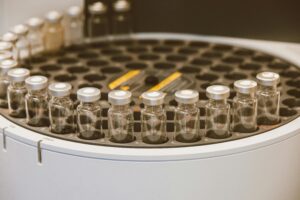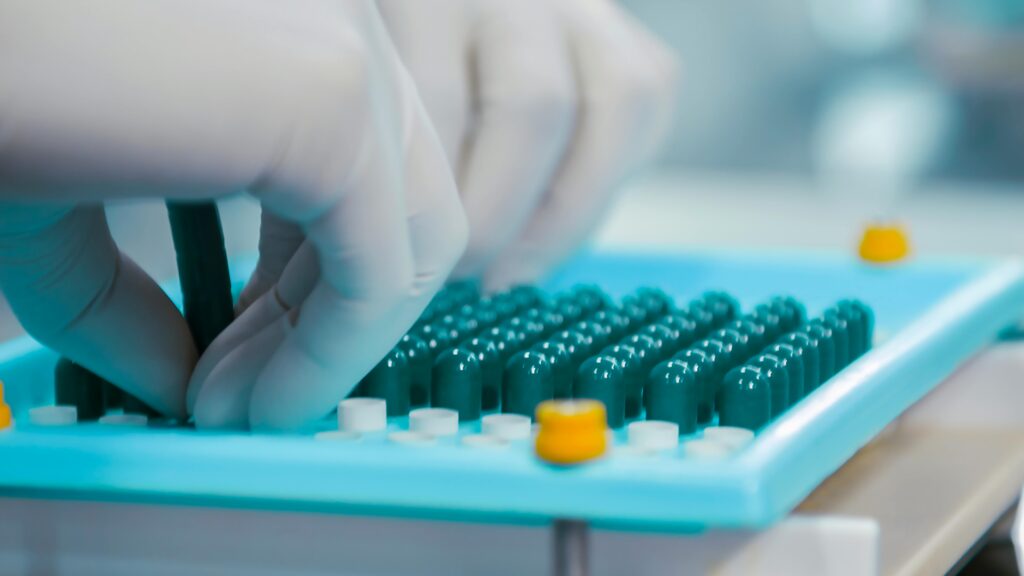In the pharmaceutical industry, maintaining quality, safety, and efficacy throughout the storage and manufacturing process is paramount. These three pillars form the foundation of a robust pharmaceutical supply chain, ensuring that medications reach patients in optimal condition and perform as intended.
Quality Assurance in Pharmaceutical Manufacturing
Quality in pharmaceutical and storage manufacturing is not just a goal; it’s a regulatory requirement and a moral imperative. Good Manufacturing Practices (GMP) and Good Warehouse Practices (GWP) are fundamental principles that guide the industry in maintaining consistent quality standards
Implementing Quality Metrics
Quality metrics provide an objective way to measure, evaluate, and monitor the product and process lifecycle3. These metrics help manufacturers:
- Identify areas for improvement
- Drive continuous improvement efforts
- Monitor processes effectively
By implementing quality metrics, pharmaceutical companies can develop a more robust Pharmaceutical Quality System (PQS), which is crucial for sustainable compliance and supply chain resilience.
Quality by Design (QbD)
Quality by Design is a systematic approach to pharmaceutical development that begins with predefined objectives and emphasizes product and process understanding and control4. QbD aims to:
- Increase process capability
- Reduce product variability
- Enhance development capability and speed
- Improve formulation design
By focusing on QbD, manufacturers can shift from a reactive to a proactive approach, potentially reducing defects, rejections, and recalls.and
Safety in Pharmaceutical Storage Trays
Safety in pharmaceutical storage is critical to maintain the integrity and efficacy of medications. Proper storage conditions prevent contamination, degradation, and potential harm to patients.
Temperature Control
One of the most crucial aspects of pharmaceutical storage is maintaining the correct temperature. Many medications have strict temperature requirements, and deviations can compromise their efficacy. Best practices include:
- Implementing accurate temperature monitoring systems
- Conducting thermal mapping studies to identify risk areas
- Using appropriate refrigeration equipment
- Maintaining detailed temperature records
Contamination Prevention
To prevent contamination during storage, warehouses must adhere to strict cleanliness standards:
- Regular cleaning schedules
Immediate cleaning of spills - Proper sealing of storage containers and packs
- Protection of receiving areas from inclement weather
Proper Handling and Rotation
Correct handling and stock rotation are essential for maintaining product safety:
- Implementing a first-in, first-out (FIFO) system to prevent the use of expired products
- Ensuring all products are correctly labeled
- Training staff on proper handling procedures, including chemical hazard awareness
Efficacy Preservation in the Supply Chain
Maintaining the efficacy of pharmaceutical products throughout the supply chain is a complex but essential task. It requires attention to detail at every stage, from manufacturing to storage and distribution. T

Stability Testing
Stability testing is crucial to ensure that medications maintain their efficacy over time. This involves:
- Conducting long-term stability studies
- Performing accelerated stability testing
- Establishing appropriate expiration dates
Environmental Controls
Beyond temperature, other environmental factors can affect drug efficacy:
- Humidity control to prevent moisture-induced degradation
- Light protection for photosensitive medications
- Proper ventilation to maintain air quality
Packaging Integrity
The right packaging plays a vital role in preserving efficacy:
- Using appropriate materials that protect against environmental factors
- Ensuring seals remain intact throughout storage and distribution
- Implementing tamper-evident packaging to prevent contamination
Regulatory Compliance and Oversight
The pharmaceutical industry is heavily regulated to ensure quality, safety, and efficacy. Key regulations and guidelines include:
- 21 CFR Part 210/211, which sets standards for Current Good Manufacturing Practices (cGMP)1
- USP <1079>, which provides guidelines for proper storage and shipping practices1
- USP <659>, which offers guidance on temperature management
The FDA plays a crucial role in overseeing pharmaceutical quality through initiatives like the Quality Metrics Reporting Program3. This program aims to:
- Develop a more quantitative measure of manufacturing quality
- Integrate metrics into FDA’s quality surveillance program
- Identify products at risk for quality problems
Continuous Improvement and Innovation
The pharmaceutical industry must continually strive for improvement and innovation in storage and manufacturing processes. This includes:
- Investing in new technologies for monitoring and control
- Developing more robust formulations that can withstand varying conditions
- Implementing advanced analytics to predict and prevent quality issues
By focusing on these areas, pharmaceutical companies can enhance their ability to deliver safe, effective medications consistently.
Check out our brochure for more information.

